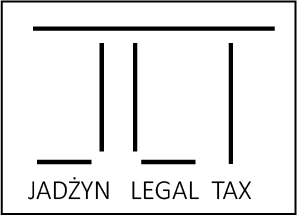
What is meant by the posting of employees?
Posting is a situation where a worker temporarily leaves the scope of other EU country social security law under the direction of the foreign employer and is sent to another country in UE in order to be involved in a foreign enterprise.
Example:
A German GmbH delegates an engineer for 6 months to a subsidiary in Poland.
The construction company from Germany is building a road in Poland. She sends ten construction workers to Poland for three months .
Where are the employees posted to Poland subject to social security?
In Poland, of course, Regulation (EC) No 883/2004 of the European Parliament and of the Council of 29 April 2004 on the coordination of social security systems applies.
The employee who works in one Member State (for example Germany) on behalf of an employer, who is normally employed there, and who is posted by that employer to another Member State (to Poland) to carry out a work for his account, remains subject to the legislation of the first Member State (Germany), provided that the foreseeable duration of this work does not exceed 24 months. If the posting takes longer than 24 months, the posted employee is subject to Polish social security law.
It is important that the posted workers who wish to work in Poland and for whom the German social security legislation applies should apply for a “certificate of application of the German legislation” (form A1). The same applies for other UE countries. The form A1 (certificate A1) serves as proof to the Polish and foreign authorities that the posted workers in Poland are subject to social security in the state of origin. Without certification A1, the employer would have to pay the social security contributions in Poland according to the following principles:
The social security contributions in Poland are calculated in principle from the employee’s gross income and amount to:
- Pension insurance – 19.52%
- Disability Insurance – 8%
- Health insurance – 2.45%
- Accident insurance – from 0.67% to 3.86%
- Labor Fund 2.45%
- Health insurance premiums – 9% (7.75% of the amount deducted from income tax).
Where should the income from the posting of employees to Poland be taxed?
The question of the taxation of income from employment is governed by a Agreement for the avoidance of double taxation between state of origin and Poland (DTA). DBA contains provisions that regulate in which country the income is taxable.
The basic rule is:
Salaries, wages and similar remuneration received by a posted employee from employment are taxable only in state of origin, unless the work is carried out in the other Contracting State (here Poland). If the work is carried out in Poland, the related remuneration may be taxed in Poland (Article 15 (1) DT).
From this main principle, there is a very important exception. It is a so-called 183-day rule. If this rule applies, the income of the employee posted to Poland shall be taxable only in the state of origin. For this purpose, three conditions must be met cumulatively:
- the beneficiary (the employee seconded to Poland) in the other country (Poland) does not stay longer than 183 days in any 12-month period beginning or ending during the tax year concerned or in tax year (depending on applicable DTA); and,
- the remuneration is paid by an employer or an employer who is not resident in the other country (Poland), and
- the allowances are not paid by a permanent establishment or establishment that the employer has in the other country (Poland).
Example:
The construction company from Germany is building a building in Poland. The project lasts 8 months. The master builder is sent from Germany to Poland for 5 months. The salary is taxed only in Germany, because the stay is shorter than 183 days and is paid from Germany. The German construction company also has no permanent establishment.
When applying the 183-day rule, it is very important to correctly determine the days of stay.
Some DTAs refer to a “period of twelve months”, taking into account all conceivable 12-month periods, even if they partially overlap. Often the days of stay are determined incorrectly, since only the days in one tax year are calculated.
Example:
The posting of employees to Poland starts on 01.10.2018 and lasts until 30.04.2019. The employer taxed the allowances only in Germany because in 2018 the stay lasted only 3 months and in 2019 only 4 months. Such determination of the days of stay is wrong and leads to tax arrears in Poland. The stay in the 12-month period (eg from 30.04.2018 to 30.04.2019) was 7 months, so over 183 days.
When determining the number of days of stay, account shall be taken of any day on which the worker actually resided, even for a short time, in the other Contracting State. The decisive factor is not the duration of the occupational activity (working days), but only the physical presence in the country of activity (also arrival and departure days, Saturdays, Sundays, public holidays, holidays).
The 183-day rule also does not apply if the allowances are paid by an employer’s establishment in Poland. The term of the permanent establishment was also regulated in applicable DTA. The permanent establishment is a fixed place of business through which the activity of a trader is wholly or partly carried out, such as a branch, factory, workshop, etc. A permanent establishment is also a construction or assembly lasting more than twelve months.
If the payment is made at the expense of an establishment of the employer in the State of operation, the conditions for the application of the 183-day rule are not met. Taxation then takes place in the country where the permanent establishment is located, right from the beginning.
Example:
The construction company from Germany is building a building in Poland. The project should take 8 months. The construction company has sent to Poland one employee for the first 4 months of the project and another employee for the last 5 months to Poland. Because of the bad weather, the project has been extended by 5 months and took a total of 13 months. Although the employees spent less than 183 days in Poland, a permanent establishment in Poland was established. Wages of employees posted to Poland must be taxed in full in Poland.
In addition, the 183-day rule is also excluded in the case of commercial labour leasing. At temporary employment to Poland, the salaries paid to the hired employee are subject to Polish income tax.
What is the income tax (income tax) in Poland?
Polish income tax provides for two progressive tax rates of 18% and 32%.
The allowance is 8,000 PLN. With the income sum between 8,000 and 13,000 PLN, the allowance gradually decreases to 6,600 PLN. Between PLN 13,000 and PLN 85,528.00, the allowance is PLN 6,600. With the annual income between PLN 85,528.00 and PLN 127,000.00, the allowance decreases gradually to zero. From 127,000.00 PLN the free allowance is not provided.
The income up to 85,528.00 PLN is the tax rate iHv. 19% and over this amount taxed at 32%.
The directors and members of the supervisory board, who are not resident in Poland and have not concluded any employment or employment contract, must pay 20% withholding tax in Poland.
Does the foreign employer have to observe Polish employment law when sending workers to Poland?
The Polish minimum employment conditions apply to employees posted to Poland. These conditions apply to:
- Working hours, daily and weekly rest
- Duration of the vacation
- Minimum wage or salary and amount of overtime allowance
- Health and safety at work
- Employment of pregnant women and minors
More information on minimum employment conditions can be found << HERE >> :
Do you have to observe the obligation to report when sending staff to Poland?
From 2016, a new obligation to register for the secondment to Poland is planned. At the latest on the first day of posting, a statement must be made to the State Labor Inspectorate (Państwowa Inspekcja Pracy). The declaration is very similar in content to the notifications to be given to the Customs Office when it is sent to Germany. In principle, the information provided by the employer, individual employees and the place of employment must be provided.
In addition, the employer must name a person who will be responsible for the contacts with the Labor Inspectorate for the entire duration of the posting. This person should be in Pole. All contacts with the Labor Inspectorate are made by this person. The regulations do not stipulate that the contact person has certain qualifications (eg a lawyer or tax consultant title), but it is advisable to apply for a specialist in Polish employment law. This will facilitate contacts with Polish authorities.
For violations of these reporting obligations, a fine of up to PLN 30,000 is envisaged.
Does the employer have to keep the documents in Poland?
When posting employees to Poland, the following documents of the posted workers must be kept in Poland:
- copy of all employment contracts
- time sheets to record the start, end and duration of daily working hours
- payslips
The documents may be kept in writing or electronically. They can be in German. However, the Labor Inspectorate may request the Polish translation. The translation must be submitted within 5 working days.
The law firm JLT offers complex legal and tax advice for foreign companies. We support the companies in posting employees to Poland, in particular, a lawyer from our office is named as a contact person. We can also fulfill all reporting obligations for you and help you to comply with Polish labor law. If you have any questions, we are at your disposal.
radca prawny i doradca podatkowy
Rechtsanwalt und Steuerberater
JLT Jadżyn Legal & Tax
Poznań / Posen

